Grand & Granular: A Conversation with Don Winslow
Interviews
By William Boyle
No one writes crime epics like Don Winslow. The Border, his newest, is the final book of a trilogy that began with The Power of the Dog in 2005 and continued with The Cartel in 2015. The Cartel trilogy is a high-wire act that spans almost half a century, tracing the history of the War on Drugs and calling into question our very notion of borders and the nature of crime and obsession. Between The Cartel and The Border came The Force, the greatest cop novel of the new century. Winslow’s written fourteen other acclaimed novels, as well as nonfiction and screenplays, and he’s unafraid of going to the mat for what he believes. It’s impossible to talk about Winslow and his work without falling into hyperbolic platitudes. As my friend Angela Atkins wrote recently, “Don Winslow is a national treasure.” So, you’ll have to forgive my tone of shocked reverence here. Reading Winslow, I feel like a kid with one good pitch watching from the edge of the dugout as a real pro shows how it’s done. A few days before I met up with him at a hotel bar in Charlottesville, Virginia, he’d posted a controversial poll on Twitter: Heat versus Goodfellas. His own take on it, though the poll ended up largely in favor of Goodfellas, was that Heat is superior. Naturally, I started there.
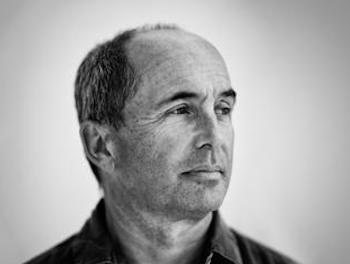
William Boyle: I love both films, but it struck me as such a perfect representation of you as a writer that you chose Heat over Goodfellas.
Don Winslow: From a writer’s perspective, and from a shooter’s perspective, I have to go with Heat. Goodfellas is a great film, and yet I always felt, watching it, that I’d seen it before. Same cast, same guys, same crew. I’ve seen Heat god knows how many times, but when I first saw it, I was surprised at every beat. And there were so many original beats in there that we hadn’t seen before. I talked with Michael Mann about it one time. I couldn’t help myself. We were just meeting and having a get-to-know-you conversation, and I said, “I’ve gotta ask you something, Michael. The scene with De Niro and Pacino in the restaurant, you and I both know, could never happen, and it was great. Did you do it because you knew it was the only time they’d been in the same film in the same scene together?” And he said, “Of course. You had to do it.”
WB: You praised Heat’s “crucial and unsung multiple watchability factor.” It’s a film that reveals something with each viewing, and it’s three hours but it feels so damn fast. The same is true of your books. You have these big novels that just move like hell. What about the crime epic or crime saga draws you in, appeals to you? What makes something like Heat work? What makes anything else in that vein that’s inspired you work so well?
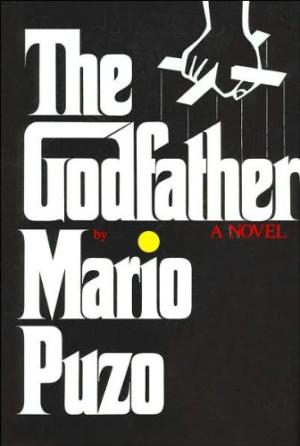 DW: When I saw The French Connection, I remember so vividly walking out of the theater, almost dizzy, thinking, “Man, if I could grow up and tell stories like that, that’d be a good way to live.” Until The Godfather—the book—came out, nobody had thought about doing that. Crime was the easy read. When that came out and then the films came out, for a lot of young guys like me, you saw the possibilities. It’s funny—we’re talking about cinema more than books. The epics were Lawrence of Arabia, Doctor Zhivago (which is an unreadable book but a great film), and Ryan’s Daughter. And then The Godfather comes along and you get that era of these epic crime films that say, “We can tell these big operatic stories with big casts.” The biggest criticism I always get about my books from editors, from critics, and from readers is that there are too many characters. This Spanish reporter I was talking to on the phone a couple of mornings ago just cracked me up. He said, “You have a thousand characters in this book!” I said, “There’s not a thousand. Did you count them? There’s maybe eight hundred.”
DW: When I saw The French Connection, I remember so vividly walking out of the theater, almost dizzy, thinking, “Man, if I could grow up and tell stories like that, that’d be a good way to live.” Until The Godfather—the book—came out, nobody had thought about doing that. Crime was the easy read. When that came out and then the films came out, for a lot of young guys like me, you saw the possibilities. It’s funny—we’re talking about cinema more than books. The epics were Lawrence of Arabia, Doctor Zhivago (which is an unreadable book but a great film), and Ryan’s Daughter. And then The Godfather comes along and you get that era of these epic crime films that say, “We can tell these big operatic stories with big casts.” The biggest criticism I always get about my books from editors, from critics, and from readers is that there are too many characters. This Spanish reporter I was talking to on the phone a couple of mornings ago just cracked me up. He said, “You have a thousand characters in this book!” I said, “There’s not a thousand. Did you count them? There’s maybe eight hundred.”
I was talking to a group of aspiring writers the other night, talking about cheap writer tricks, saying, “Look how The Godfather introduced all the major characters in one scene, at a wedding. The next movie has a christening.” So, The Border has a funeral. That solved so many problems. What I realized you could do is find an event that’s already evocative to an audience or a reader, and you get that kind of bonus. With a wedding, a christening, a birthday party, a funeral, a Christmas party, you’ve already got the emotion cooking. And you have a reason that makes sense to bring characters together who are now looking at each other, sussing each other out, or—as in The Godfather—making requests. I saw The Godfather with the son of a Mafioso. We were teenagers, and we went and saw it, a car trailing us with the bodyguards. None of us had ever heard the word “godfather” used in that way until the film came out. He was always called The Boss. It was Raymond Patriarca where I grew up. Afterwards, the mob liked what they saw and started imitating it.
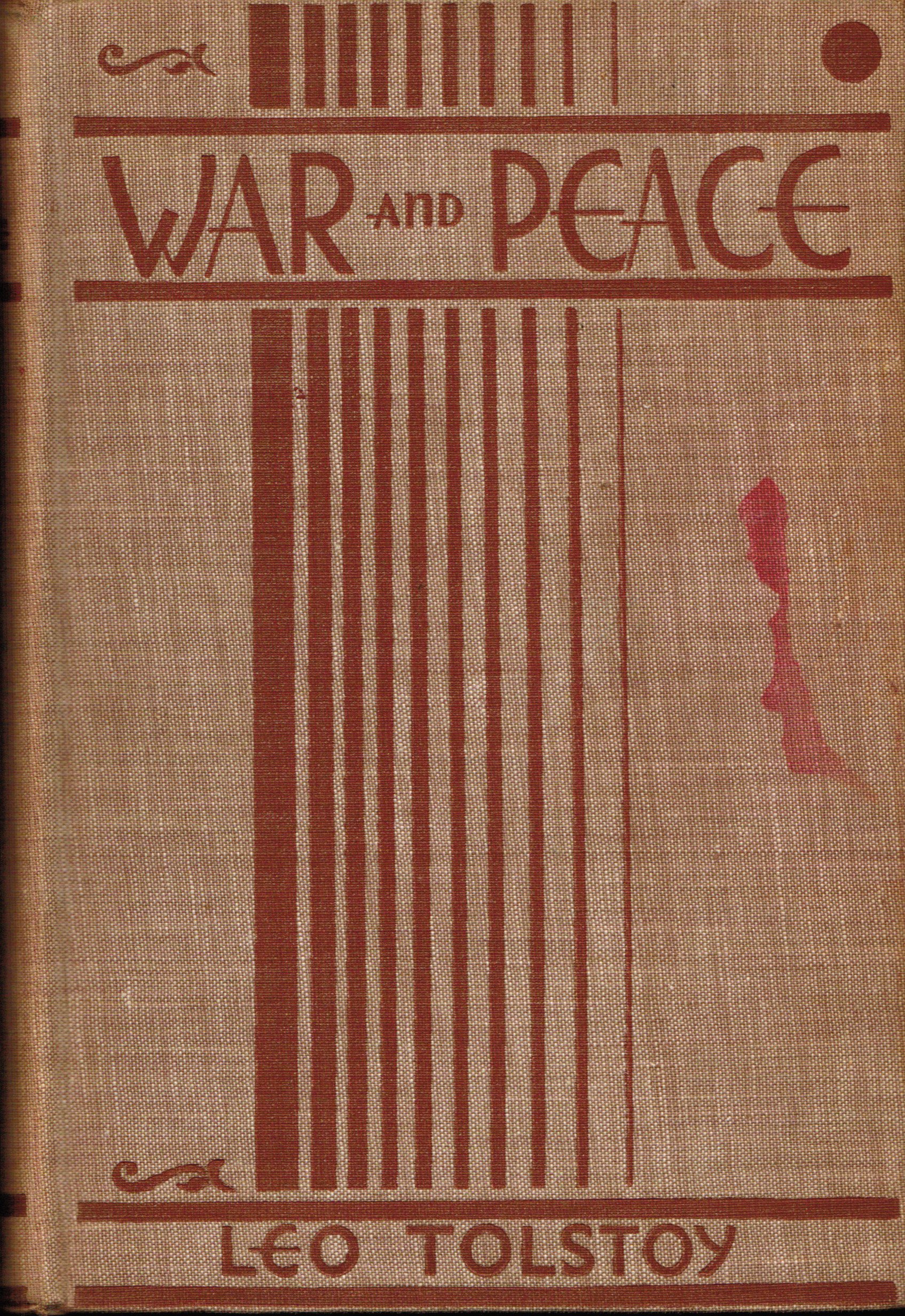 When I started writing The Power of the Dog, the original manuscript was two thousand pages, and they said cut it in half. I went back and read The Godfather, but I also reread War and Peace, Anna Karenina, and Moby Dick. I realized that Art Keller is an obsessive, and I wanted to look at how some really great writer did it. So I went to Moby-Dick, the greatest obsession in American literature in long-form fashion. And the genius of War and Peace is that it’s both grand and granular. You’ve got these huge scenes, but you’ve also got dances and parties where they’re talking about the tiniest intricate details, emotional details. How did Tolstoy do that? And so, I think that when we look at crime literature now, we’re more able to say it can encompass an epic, it can encompass a saga—that all started with Puzo.
When I started writing The Power of the Dog, the original manuscript was two thousand pages, and they said cut it in half. I went back and read The Godfather, but I also reread War and Peace, Anna Karenina, and Moby Dick. I realized that Art Keller is an obsessive, and I wanted to look at how some really great writer did it. So I went to Moby-Dick, the greatest obsession in American literature in long-form fashion. And the genius of War and Peace is that it’s both grand and granular. You’ve got these huge scenes, but you’ve also got dances and parties where they’re talking about the tiniest intricate details, emotional details. How did Tolstoy do that? And so, I think that when we look at crime literature now, we’re more able to say it can encompass an epic, it can encompass a saga—that all started with Puzo.
WB: The other thing about the epic or the saga is time. All of my novels are set over a few days because I’m nervous about it getting away from me. Your books handle time in a way that’s so accessible but allows you to deal with so much. How do you do that?! How do you keep track of it all?
DW: I almost died doing The Power of the Dog. I really did. There were times I just laid my head on the keyboard and said, “I can’t do this.” I was so confused, just out in the tall grass. What should be past and what should be present? What should be in somebody’s memory and what should be happening to us right now? To me, it’s all a matter of rewriting. I write the first drafts very fast. I’m not thinking about the reader at all. I’m just thinking about myself, I’m just having a good time.
WB: The research process started with The Power of the Dog or before that?
 DW: It started with The Power of the Dog. I had no interest in this topic prior to that, no knowledge of it. And so I started researching. Dog was a six-year endeavor between the research and the writing. I had to start from scratch. And I mean scratch. I was reading pre-Columbian, Central American history. And then it became obsessive. It just ate my life for six years. It ate the space in my house. My office was stacked with books and documents and notes. I did a lot of research for The Border, particularly on heroin and with heroin addicts, and some of the work I did on The Force informed sections of this book because I was with the narcotics squad, but by the time I got here, I was immersed in that world already.
DW: It started with The Power of the Dog. I had no interest in this topic prior to that, no knowledge of it. And so I started researching. Dog was a six-year endeavor between the research and the writing. I had to start from scratch. And I mean scratch. I was reading pre-Columbian, Central American history. And then it became obsessive. It just ate my life for six years. It ate the space in my house. My office was stacked with books and documents and notes. I did a lot of research for The Border, particularly on heroin and with heroin addicts, and some of the work I did on The Force informed sections of this book because I was with the narcotics squad, but by the time I got here, I was immersed in that world already.
WB: Do you work on these books simultaneously?
DW: Typically, I’ll be writing one book and researching another. I finished The Cartel in the morning and started writing The Force in the afternoon. I start writing around 5:30 in the morning. I stop by 2:30 or 3:00. After that, I know anything I’d write would be crap. What I’ve learned to do is put it away and go do research. Although there will be times, if it’s intensive onsite research, then I might just be doing research for weeks because I’m out in Brooklyn riding around at night or down at the border or at a treatment center or a prison.
WB: When you cut that two-thousand-page draft of The Power of the Dog in half, did you use it anywhere else, or did that just serve as backstory, knowledge for going forward?
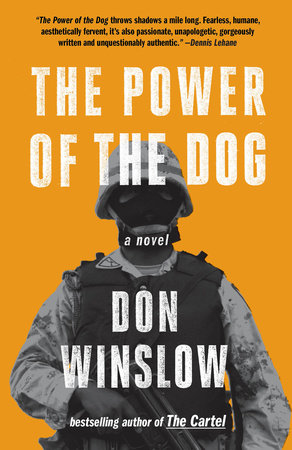 DW: I threw it out. I realized I’d made the critical Writer 101 mistake in that I hadn’t established for myself what the characters wanted and I had this sprawling mess. I wrote my way into it. And I finally realized that the real question for each of them was “How do you live decently in an indecent world?” Which is sort of a central question in crime fiction. Once I had that, I could cut, I could shape, and I could also deal, oddly enough, with the time issue. Over the course of time, what’s happening to these people that’s driving them further and further away from what they want? If you look at where Adán Barrera is in 1975 versus where he is in 1993, it’s been this march away from decency, but still there’s this striving to get it.
DW: I threw it out. I realized I’d made the critical Writer 101 mistake in that I hadn’t established for myself what the characters wanted and I had this sprawling mess. I wrote my way into it. And I finally realized that the real question for each of them was “How do you live decently in an indecent world?” Which is sort of a central question in crime fiction. Once I had that, I could cut, I could shape, and I could also deal, oddly enough, with the time issue. Over the course of time, what’s happening to these people that’s driving them further and further away from what they want? If you look at where Adán Barrera is in 1975 versus where he is in 1993, it’s been this march away from decency, but still there’s this striving to get it.
WB: Do you ever feel trapped by that kind of code of morality, or is it a guiding principle?
DW: It’s a beacon. I never feel trapped by any of those things, by the way. I never feel trapped by definitions. What’s a thriller, what’s a cozy, what’s noir, what’s a procedural? Fuck all of that. It’s nonsense.
WB: It comes down to the idea of borders, right? Imposing borders on genre.
DW: Exactly. What are you willing to cross? If you do cross it, can you cross back? I had a buddy say, “You switch points of view inside a paragraph.” I said, “Dude, I’d switch points of view inside a word if I could figure out how to do it.” Because readers are smart. If you treat them like idiots, they’ll read you like idiots. If you treat them like intelligent people, they’ll read you like intelligent people. It’s just a fact. What I mostly have in mind is Chandler’s classic definition of the hero: “Down these mean streets must come a man who is not himself mean.” That, to me, would be the Art Kellers of the world and even Malone in The Force. They’re not perfect people. They’re flawed. But they’re not inherently mean. I didn’t even know if I liked Art Keller, to tell you the truth. It just has to be an interesting character. And the writer—at least this writer—has to know what the character wants. When I don’t know that, it’s just a mess.
WB: Do you typically write your way into figuring that out? Since this is a trilogy, I guess you have a much better sense of everything going in?
DW: By the time I got to this book, I knew the world inside and out. What I hadn’t realized, having finished The Cartel, was that while I had resolved Keller’s external conflict—I’d resolved Keller versus Barrera rather definitively—I’d never resolved Keller versus Keller, which is what The Border is about. I thought I was done and then I realized I wasn’t. More stuff kept happening. I thought the story was over, but it wasn’t.
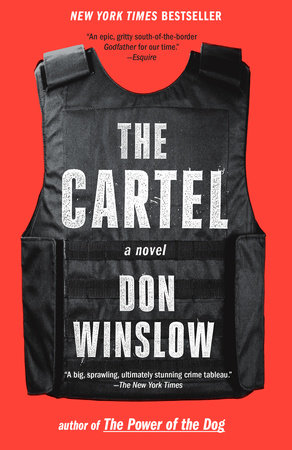 WB: Michael Connelly wrote this about The Cartel: “[It’s] a first-rate edge-of-your-seat thriller for sure, but it also continues Winslow’s incisive reporting on the dangers and intricacies of the world we live in. There is no higher mark for a storyteller than to both educate and entertain. With Winslow these aspects are entwined like strands of DNA.” I wonder what it’s like to work with that idea in your head, that you’re educating people, that you’re dealing with some people who are crime fiction fans who will be on board and some people who are smart who will know you’re getting it right, but then you’re also dealing with a whole host of people who are buying into falsehoods, maybe even believing that stuff in Sicario: Day of the Soldado is reality.
WB: Michael Connelly wrote this about The Cartel: “[It’s] a first-rate edge-of-your-seat thriller for sure, but it also continues Winslow’s incisive reporting on the dangers and intricacies of the world we live in. There is no higher mark for a storyteller than to both educate and entertain. With Winslow these aspects are entwined like strands of DNA.” I wonder what it’s like to work with that idea in your head, that you’re educating people, that you’re dealing with some people who are crime fiction fans who will be on board and some people who are smart who will know you’re getting it right, but then you’re also dealing with a whole host of people who are buying into falsehoods, maybe even believing that stuff in Sicario: Day of the Soldado is reality.
DW: I have to forget about all of that. I’m aware of all of it: My education is as a historian, and that’s the way I tackle these things. But then I have to remind myself I’m not writing history, I’m writing a novel. I’m writing what better be a good, exciting, interesting story, albeit with a lot of information. The way I view my job is that I’m supposed to bring people into a world they couldn’t otherwise enter. I’m their guide. When I’m writing, even though I’m aware of everything you just mentioned, dead-on, I have to throw all of that away. I’ve gotta be inhabiting the character’s mind, I’ve gotta be seeing the world through the character’s eyes. I won’t consider any of that stuff, period. Because then I’m writing polemics or history. The other thing is you have to avoid the brightest-boy-in-class syndrome. Just because you know the answer doesn’t mean you have to tell the answer. You don’t have to tell every fact that you learned. Sometimes in the rewriting process, I’m going through, thinking, Winslow, come on, dial it down.
WB: So the fact that it’s fiction makes you freer?
DW: Absolutely. What you and I do, we have that ability and freedom to invent, to use our imaginations, to create dialogue that people didn’t speak in reality, and thoughts and feelings, and that’s what distinguishes us from journalists. But in this kind of book, I have to hew pretty closely to reality. I want it to be telling a pretty real story of what really happened.
WB: You don’t want that wrong knowledge to spread the wrong way.
DW: Right. Because that’s violating my deal with the reader. My deal with the reader is, I bring you into the world and it’s the real world. Now I might move things around and fictionalize, have little touches, but for the most part, in terms of the incidents in these books, in Mexico particularly, they all happened, unfortunately. Not necessarily in the order I gave or the exact way, but they all happened.
William Boyle is from Brooklyn, New York, and currently lives in Oxford, Mississippi. He is the author of the novels Gravesend, The Lonely Witness, A Friend Is a Gift You Give Yourself, and the forthcoming City of Margins.
More Interviews
